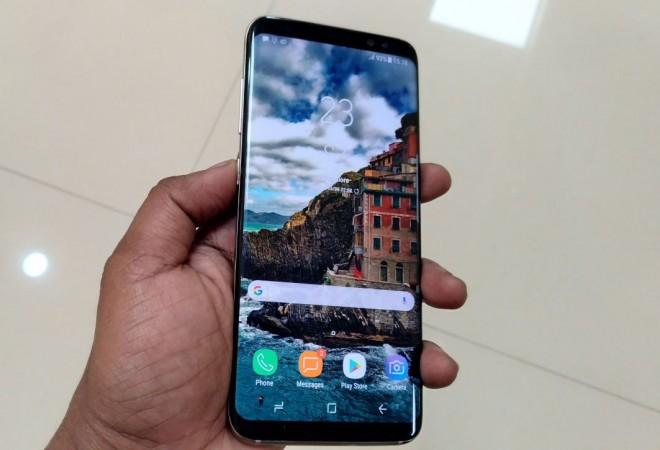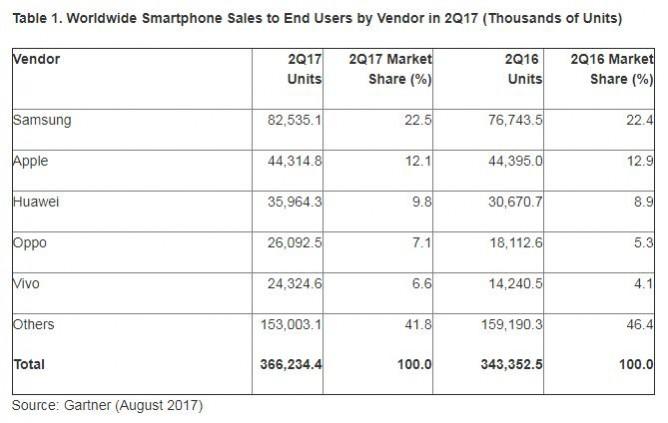The resistance Samsung showed after it had been hit hard by the Galaxy Note 7 debacle was remarkable. The speedy recovery of the South Korean conglomerate was largely attributed to the Galaxy S8 and Galaxy S8+ handsets that brought back high demand for the company's smartphones that lost credibility to some extent due to the ill-fated Note 7.
But those bad days are long gone, and Samsung now has a convincing lead over its closest rival Apple in the worldwide smartphone market. In fact, in the second quarter of 2017, the company's smartphone sales grew 7.5 percent over the same period last year while Apple's iPhone sales were largely flat, market research firm Gartner said in a new report on Tuesday.

During the three-month-period ended in June, Samsung sold 82.5 million smartphones, accounting for a market share of 22.5 percent. Apple, on the other hand, sold 44.3 million iPhones during the quarter with a market share of 12.1 percent. Rounding out the top five were China's Huawei, Oppo and Vivo with market shares of 9.8 percent, 7.1 percent and 6.6 percent, respectively.
The Galaxy S8, which is currently the world's most popular Android smartphone, managed to lure customers with its attractive curved-screen design and a rich portfolio of software apps while Samsung's retail distribution across dozens of countries helped revive its fortunes.
According to Gartner, Samsung's annual smartphone sales growth in the April-June quarter came after three consecutive quarterly declines. And, the company is expected to maintain this growth throughout the year.
"Despite growing competition from Chinese brands such as Huawei, Oppo and Vivo, we expect Samsung to register growth in 2017," Anshul Gupta, research director at Gartner, said in a statement.
Although Gupta didn't name any product, Samsung's estimated smartphone growth in the second half of the year will hugely depend on the Galaxy Note 8, which is expected to be unveiled on Wednesday. The upcoming Note 8, which is likely to go on sale in mid-September, is projected to drive Samsung's smartphone sales over the next few quarters.

When it comes to Apple, the company's smartphone sales were down 0.2 percent year-on-year. However, the Cupertino-based tech giant is also expected to come back on track with the launch of the new iOS 11 and a redesigned iPhone, dubbed the iPhone 8.
"Apple's sales in emerging markets are expected to grow as older-generation iPhones continue to attract buyers. The new iOS 11, which will include augmented reality, machine learning, an improved Siri and a new display design, will likely fuel strong iPhone sales in the fourth quarter of 2017, and help Apple increase its sales in 2017," Gupta added.
With both the leading smartphone makers gearing up for releases of their own premium flagships, a fierce battle in the high-end smartphone segment is all but confirmed. It will be interesting to see how Chinese companies will react to this power show by giants, and where they continue to win customers despite increasing competition.

















